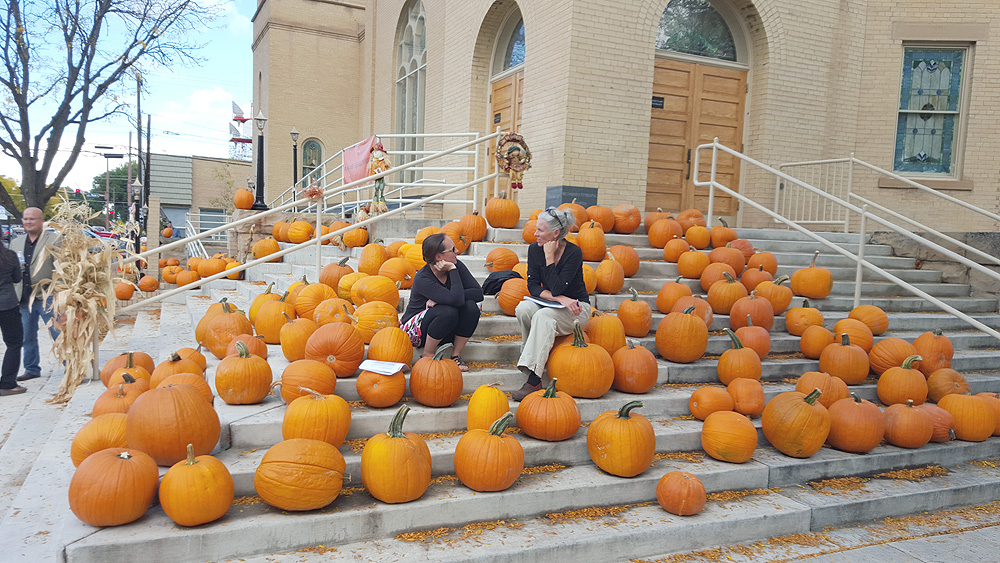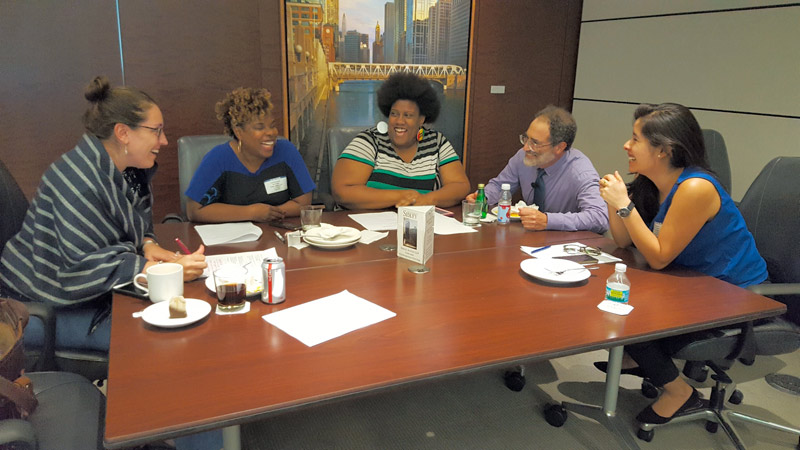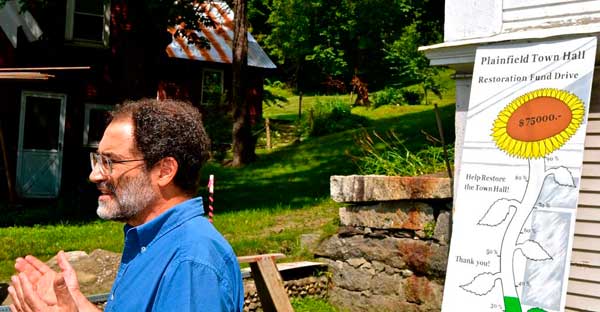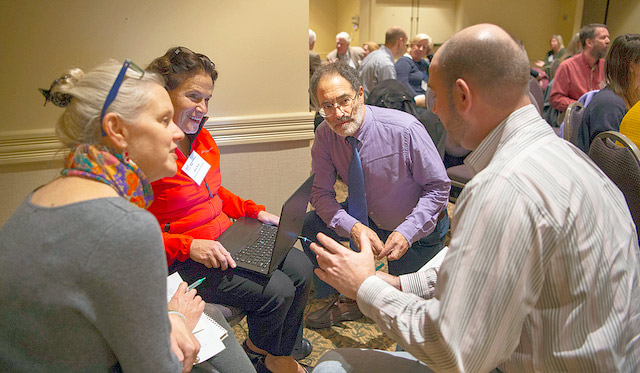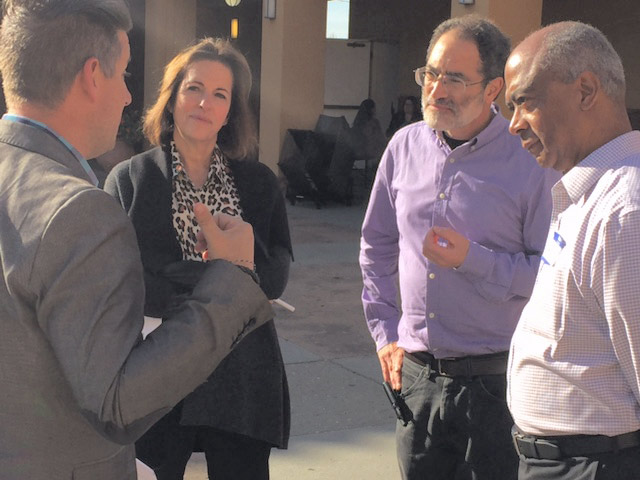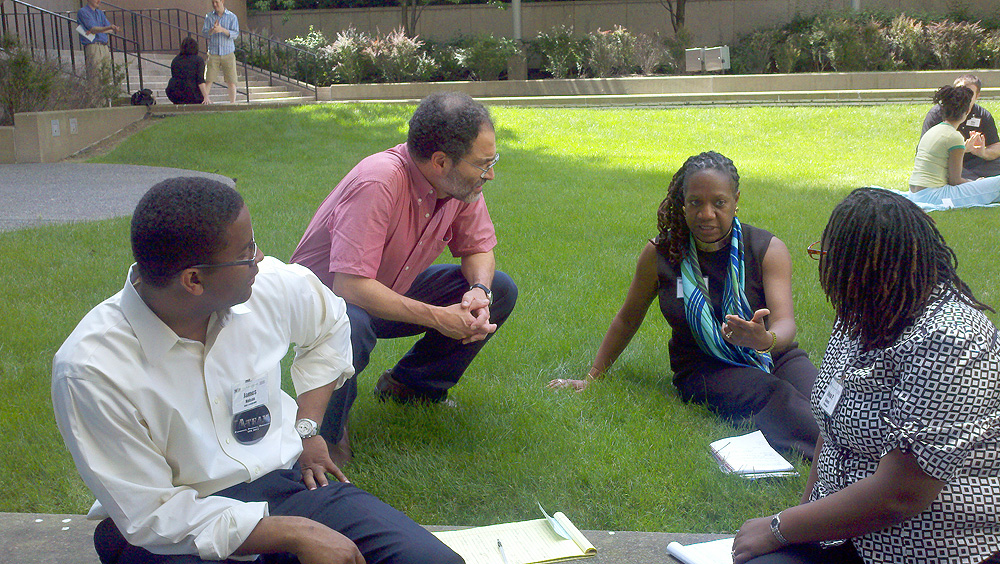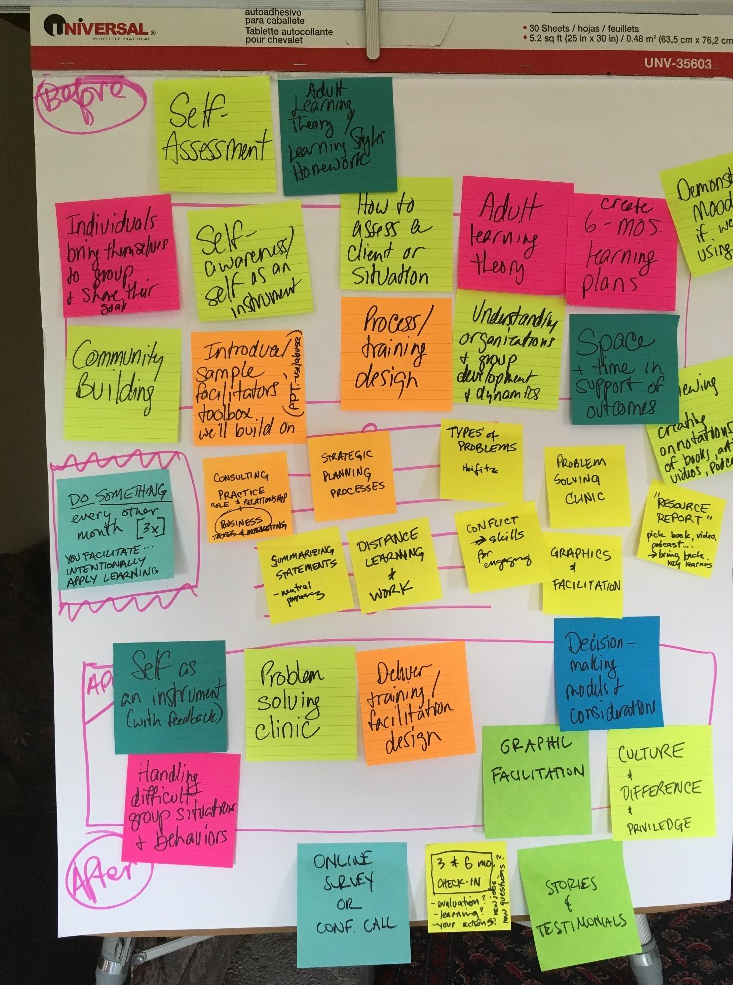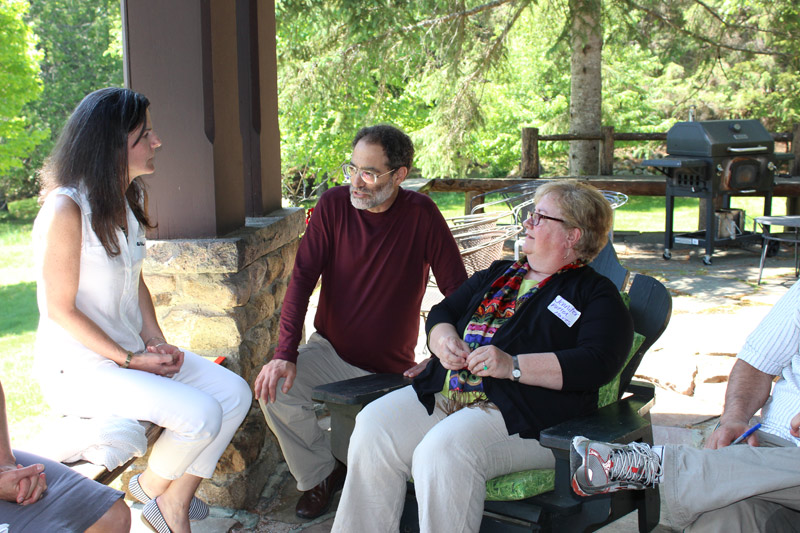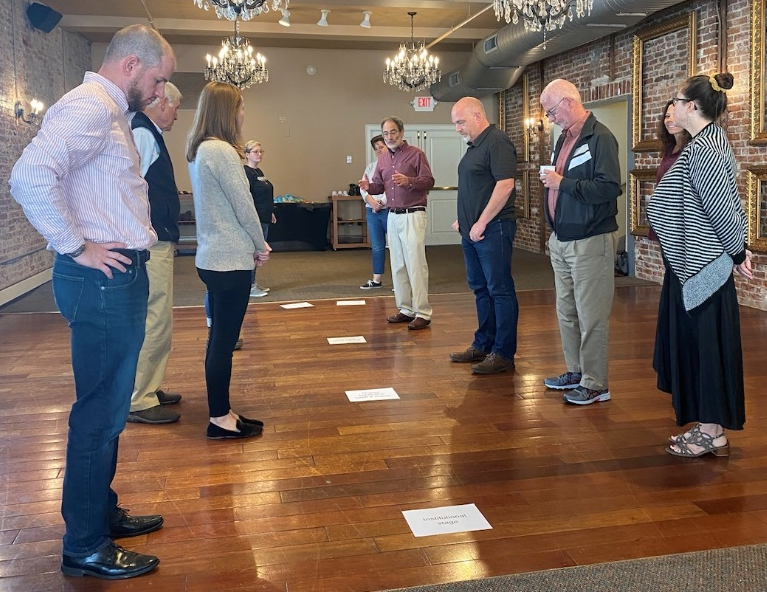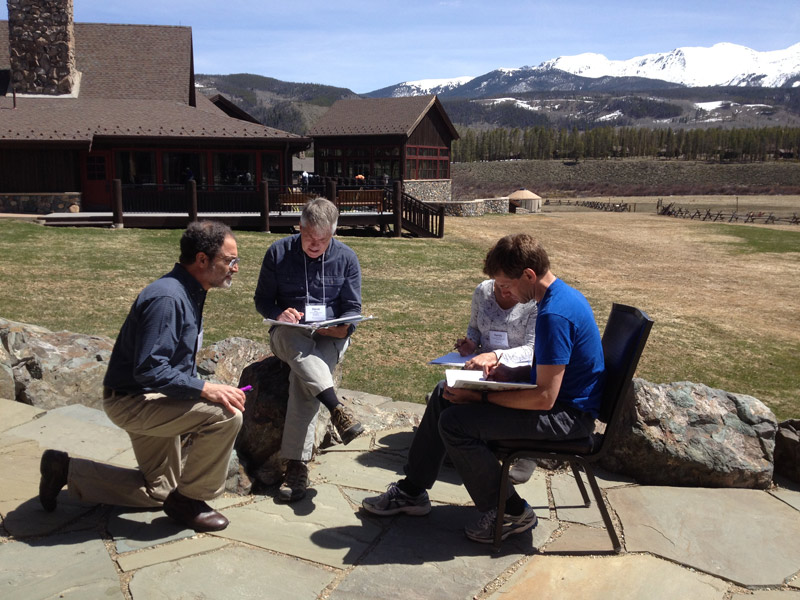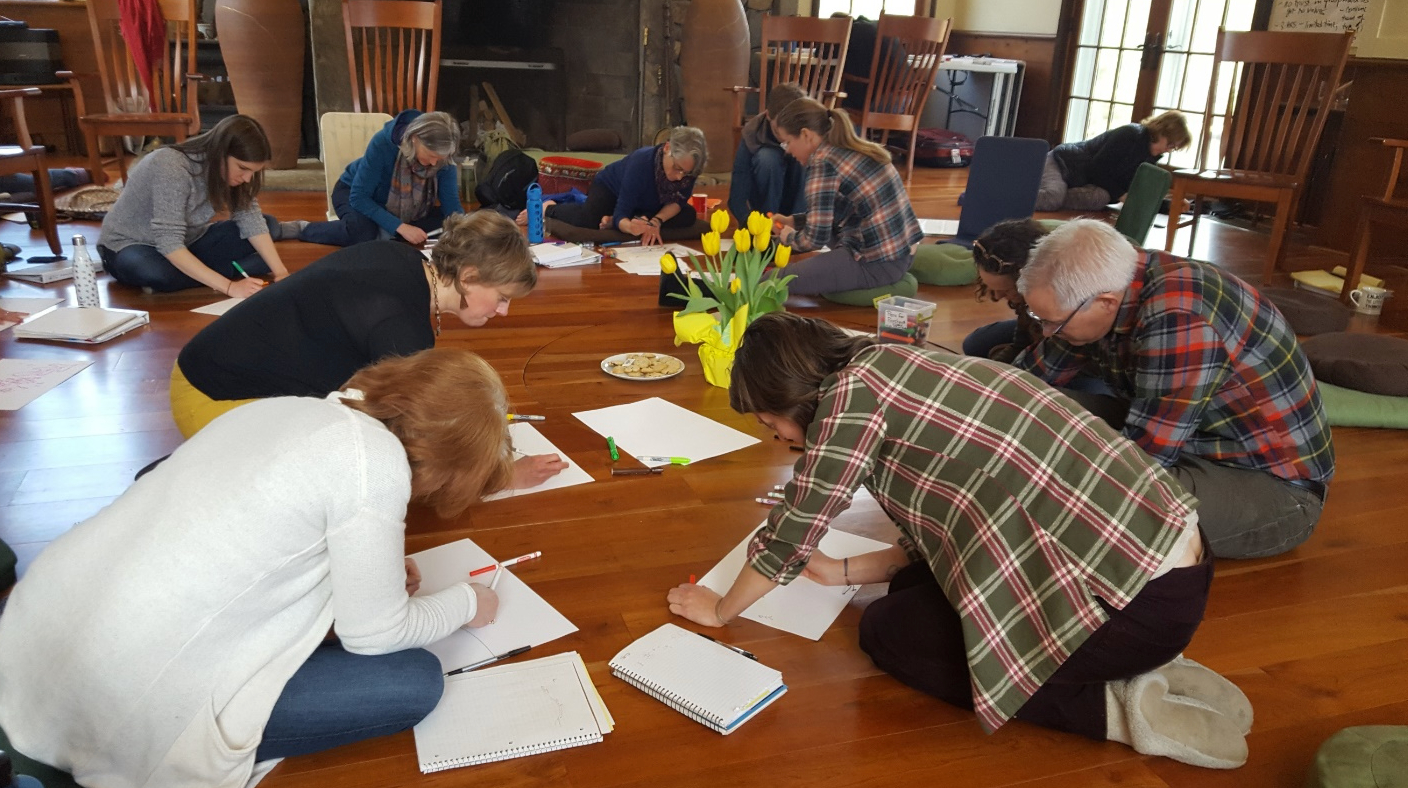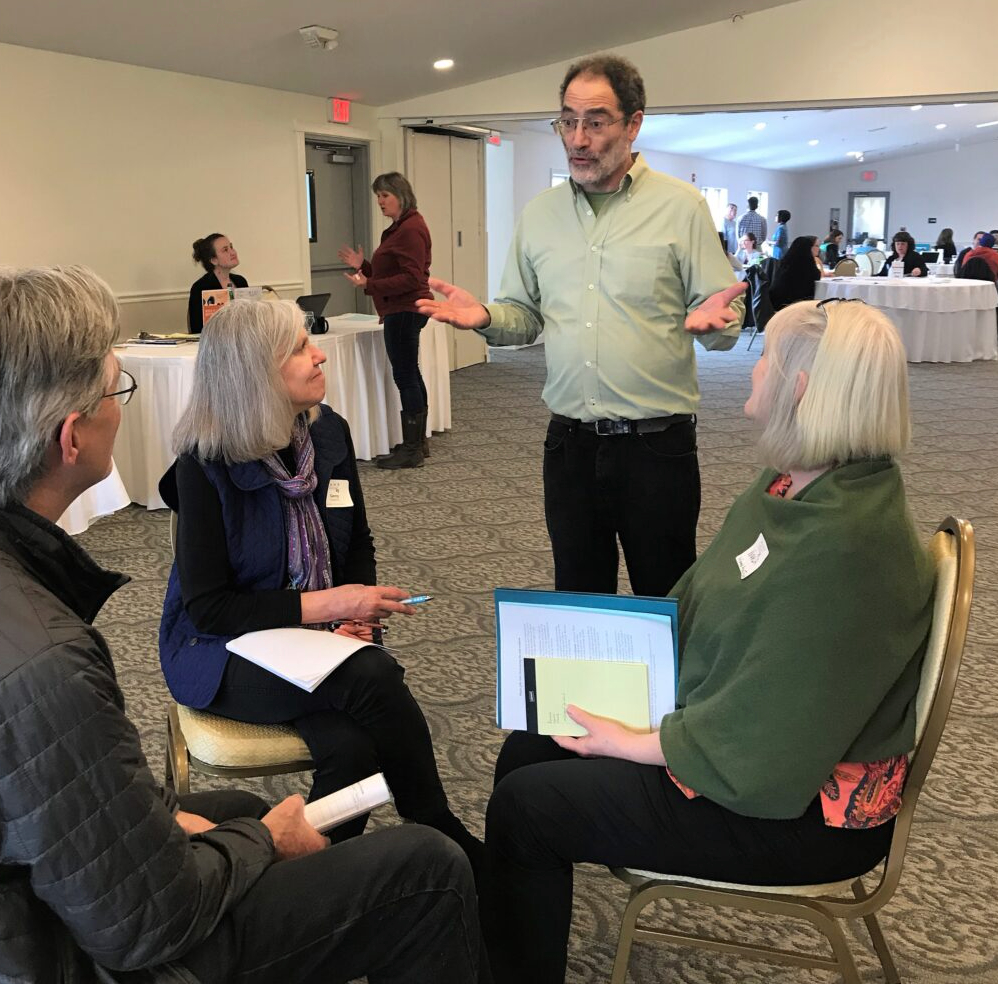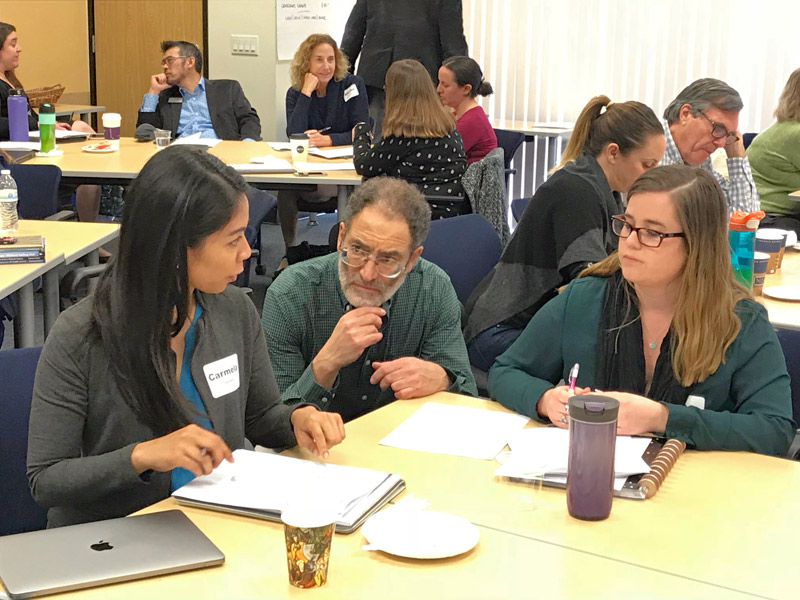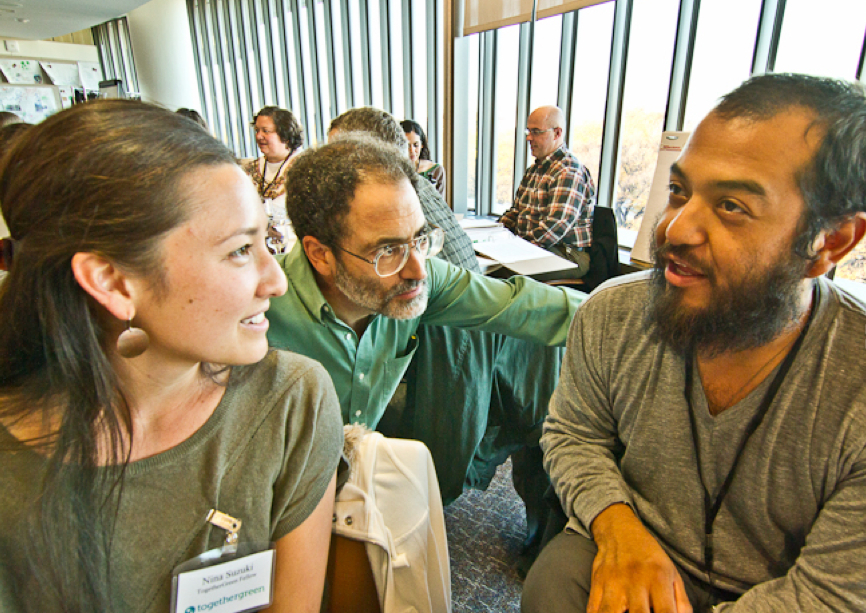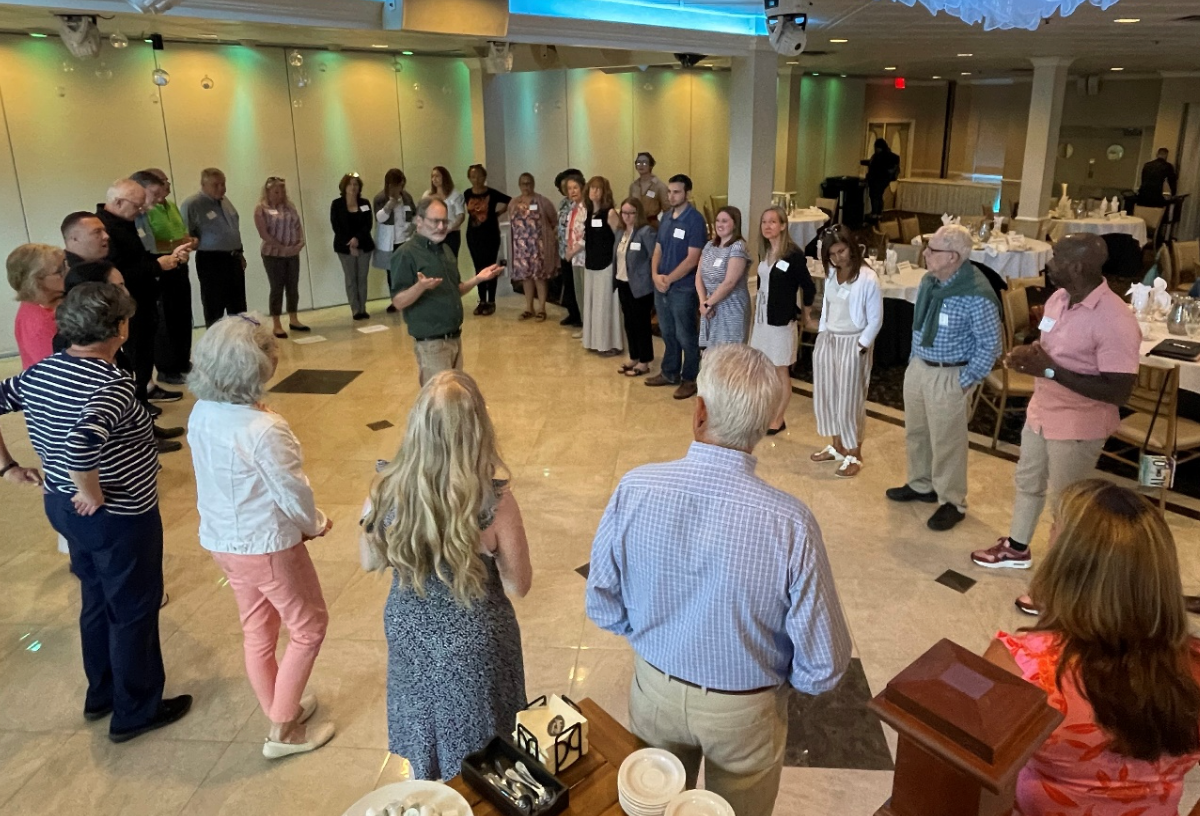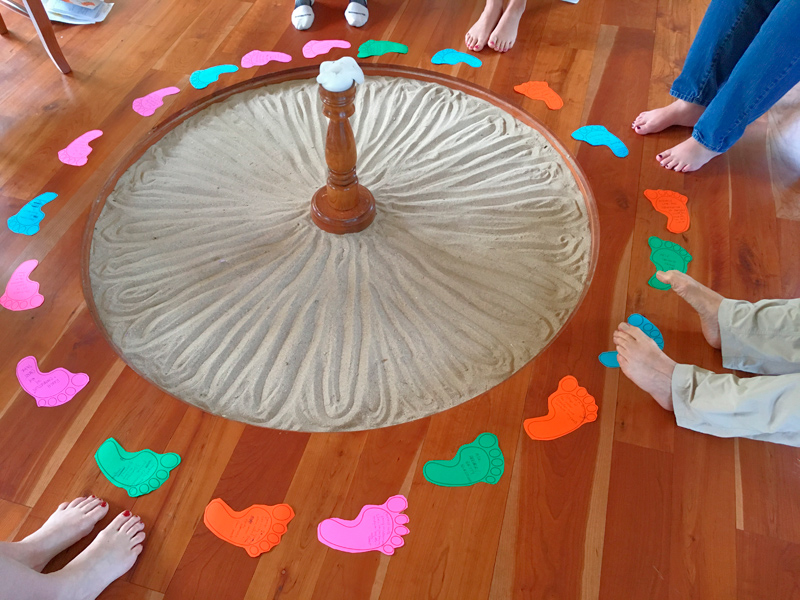Workshop and Webinar Topics
After more than 30 years of teaching and training, I know how to engage a group. These workshops are interactive and include a variety of exercises, games, and small group activities. (Warning: we might do role plays.) My goal is to create opportunities for participants to work together, try out new skills, and learn from each other.
● Big Money for Small Groups
● Mobilize Your Board to Raise More Money
● Beyond the 501(c)(3): Thinking Differently About Governance, Nonprofit Structure, and Social Change
● Managing and Fundraising in Challenging Times
● Ambassador Training: Better Word of Mouth Marketing
● Hiring (and Keeping) Your Fundraisers
● Succession Planning: Leading by Sharing Power
● Building a Board That Works!
● So You Want to Be a Consultant?
● Beyond Bad Training: A Toolkit for Trainers, Teachers, and Facilitators
● Change Management
● Train Your Board to Ask!
● Creating a 12-Week Major Gift Campaign
● Effective Meeting Facilitation
● Building Your Group: How to Effectively Recruit and Manage Volunteers
● Give Up on Your Board! An All-Staff Approach to Major Gifts Fundraising
▲ Big Money for Small Groups
75% of charitable funds come from individual donors, not foundations or corporations. Learn to build a fundraising program that honors your mission, engages potential donors, and raises more money.
• Where money comes from: Building a diverse funding base
• The basic principles of fundraising
• Identifying prospective donors
• “The ask” — face to face solicitation
▲ Mobilize Your Board to Raise More Money
If your board isn’t raising all the money it could — indeed, if your board isn’t raising any money at all — you’re not alone. In this workshop, we’ll discuss the reasons why, and outline strategies to turn things around. You’ll leave with several practical, specific ideas for increasing board involvement and effectiveness.
• Redefining fundraising: It’s not just asking for money
• Why people give: The psychology of fundraising
• Building a board fundraising menu
• Helping board members take leadership and hold each other accountable
▲ Beyond the 501(c)(3): Thinking Differently About Governance, Nonprofit Structure, and Social Change
Our traditional nonprofit model – the 501(c)(3) organization – is a legacy structure dating back many decades. Does it still work in today’s world? If not, what are the alternatives? Join us for a provocative, interactive session where we consider a broad range of options: everything from modest tweaks to board composition to entirely different governance models and legal structures.
▲ Managing and Fundraising in Challenging Times
If you’re worried about surviving and thriving in the current environment, you’re not alone. The good news: Nonprofits are resilient organizations filled with creative, proactive people. In this challenging moment, there are specific steps you can take to prioritize core programs, raise money differently, and partner more effectively with peers. We’ll discuss:
• Program planning and protecting core programs
• Contingency planning and budgeting for various scenarios
• Diversifying your income
• Collaborating with peers and partners, including shared fundraising
• Self-care: Learning to better manage and sustain yourself
▲ Ambassador Training: Better Word-of-Mouth Marketing
Even in the era of social media, the most effective marketing strategy is word of mouth. Regardless of your role – board, staff or volunteer – you can represent your organization more effectively and encourage positive buzz. Learn how to engage potential supporters, develop compelling messages, and deliver them effectively. We will discuss:
• Listening: The most valuable communications skill
• Shaping your message
• Pitching your organization one on one
• Public speaking without fear (well, with less fear)
▲ Hiring (and Keeping) Your Fundraisers
Are you having a hard time finding and retaining development staff? If so, you’re not alone. The nonprofit community faces a long-term shortage of skilled professionals who can successfully raise money. What’s going on? What can you do about it? Let’s unpack the challenges and discuss specific, tangible ideas to address them.
• How and why fundraisers feel disrespected (and what to do about it)
• The myth of the interchangeable fundraiser; how passion for the mission is connected to staff retention
• How to “grow your own” fundraiser
• Using “stay interviews” to hang on to your development staff
▲ Succession Planning: Leading by Sharing Power
How long will it take to for your organization to meet its mission, declare victory, and go out of business? Some nonprofits can envision success in a decade or two; others will continue for centuries. Will you be around for the victory party? If you’re not training the next generation of leaders, who will carry on? In this workshop, we’ll discuss:
• How organizations grow and change over time – and how leadership needs change as nonprofits grow
• Why “just doing it yourself” is seldom the best choice
• Tangible tips for training and empowering others to lead
▲ Building a Board that Works
To be effective, nonprofits must recruit board members who support their ideals, represent the diversity of the community, and bring a wide range of skills. This workshop covers:
• How boards change as organizations grow and change
• Finding and filling the gaps on your board
• Creating and using a board job description
• Board orientation strategies
• Training and motivating your board to raise money
▲ So You Want to Be a Consultant?
Are you ready to work for yourself? Do you have expertise – fundraising, nonprofit management, etc. – that you’d like to share? Are you inspired to create something new? In this workshop, we’ll discuss self-promotion (not a dirty word), how much to charge, bidding jobs, managing your time, and juggling … lots of juggling. Topics include:
• Different business models … and how to structure yours
• Using your networks to recruit clients
• Why training is the best marketing
• Why the consultant should never work harder than the client
▲ Beyond Bad Training: A Toolkit for Trainers, Teachers, and Facilitators
In nearly every workplace or organization — nonprofit, for-profit, government — somebody needs to train somebody. Learn skills to become a better facilitator and trainer, including:
• How to identify and avoid bad trainer behavior
• Designing exercises and activities that engage your learners
• Encouraging everyone to participate — and managing those who over-participate
• Building consensus and running effective meetings
• Tips and tricks from the trainer’s toolbox
Come prepared to participate. We’ll design and demonstrate training exercises in real time.
▲ Change Management
Nonprofit leadership is all about designing and creating change, both within and beyond your organization. In this session, we’ll cover:
• Identifying the change management skills you need today and in the future
• Understanding different types of change; choosing the model that best fits your circumstances
• Leadership skills and tools for change management
• Creating change at different levels: personal, interpersonal, and within groups
▲ Train Your Board to Ask!
Based on the book, Train Your Board (and Everyone Else) to Raise Money, this workshop is designed to teach you how to teach others — especially board members — to increase their comfort and skill in fundraising. We’ll try out several exercises while learning a variety of tips and tricks that will make you a more effective facilitator, trainer, and fundraising coach.
• Reducing fundraising fear and discomfort
• Effective listening and storytelling with donors
• Making the ask
• Managing donor relationships more skillfully
▲ Creating a 12-Week Major Gifts Campaign
Mobilize your team, identify your prospects, and go out and ask. If you want to build a major donor program from scratch – or improve the one you’ve already got – this workshop walks you through planning, implementation and evaluation, step by step.
• Clarify the case
• Set a goal and build a gift chart
• Recruit and train askers
• Identify, assign, and engage prospects
• Create systems to track results and hold each other accountable
▲ Effective Meeting Facilitation
Are you tired of aimless meetings that don’t generate energy, commitment, or clear next steps? Learn how to make your meetings more productive, inclusive, and fun.
• Why meetings fail
• The key to effective meetings: Make decisions!
• Building a great agenda
• Robert’s Rules vs. consensus: What’s right for you?
• How to fix a broken meeting
▲ Building Your Group: How to Effectively Recruit and Manage Volunteers
Community organizations need three kinds of resources to grow and succeed: time, money, and the leadership to use both wisely. In this workshop, we’ll discuss how to find new volunteers and develop them into a team of committed leaders. Topics include:
• Identifying and filling the holes in your leadership team
• Member and volunteer recruitment
• Motivating and managing volunteers (and easing out the ineffective ones)
• Top tips for effective volunteer-based groups
▲ Give Up on Your Board! An All-Staff Approach to Major Gifts Fundraising
Most development directors work heroically to engage their boards in face to face fundraising — with very mixed results. Yet we tend to forget about the other “human resource” available to us: the staff. Using successful case studies, we will discuss ways to engage employees in cultivating, asking, and thanking donors.
• How to define and create a “culture of fundraising” within your organization
• Identifying barriers and strategies to address them
• Training your colleagues how to ask
• Adapting the all-staff model to the specific needs and limitations of your group
